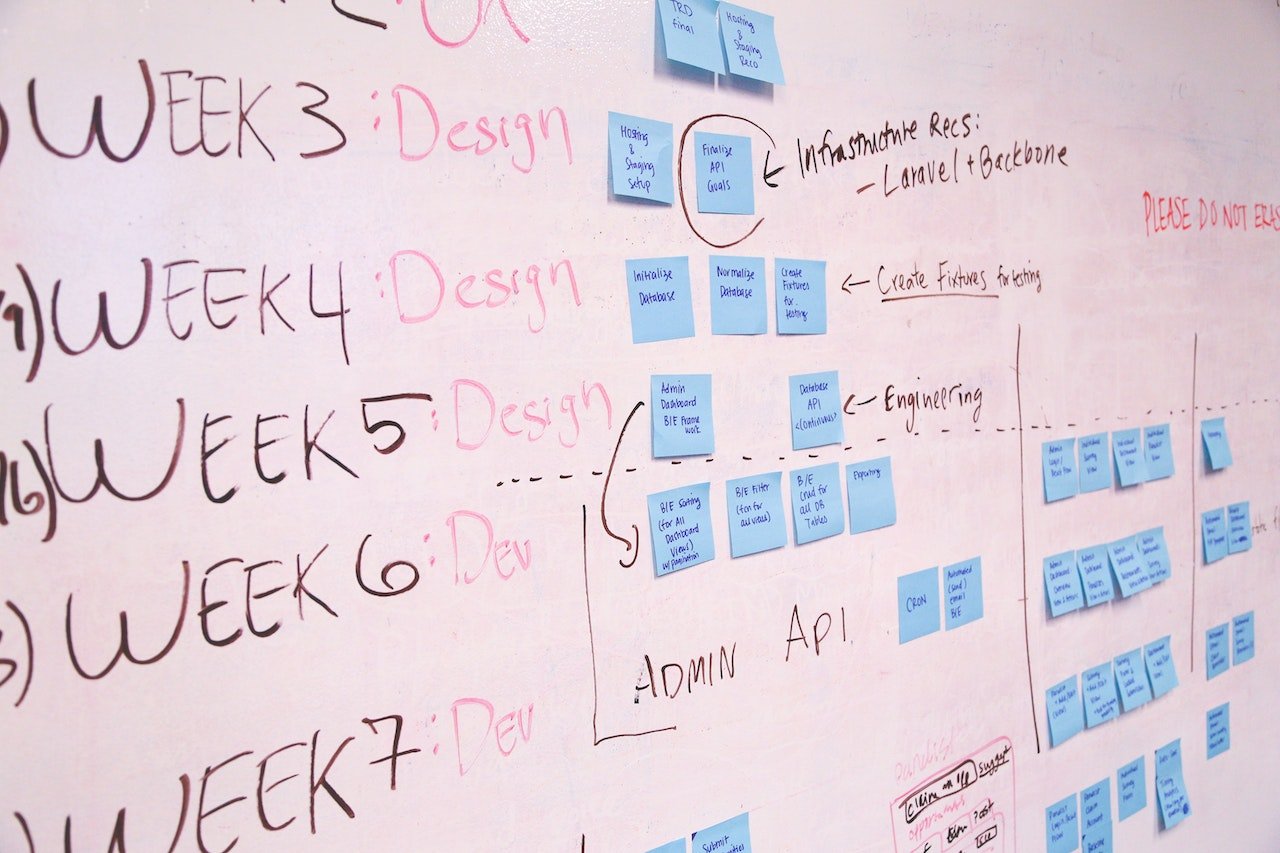
Have you ever marveled at how rapidly technology is reshaping our world? Among the most exciting advancements is the fusion of telemedicine and artificial intelligence.
Imagine a world where your virtual doctor sees and hears you and truly understands you. Thanks to the wonders of AI. A place where sophisticated algorithms are already at work before you’ve even finished explaining your symptoms, piecing together potential diagnoses.
This is going to be super exciting! We will help you understand how AI is gearing up to make telemedicine more accessible, accurate, and advanced than ever before.
Read more: AI Power In Sales & Ways To Use It
The Historical Landscape of Telemedicine
Stepping back in time, let’s first uncover the roots of telemedicine. Believe it or not, the idea of distant healthcare isn’t a product of the 21st century. In the 1900s, doctors used radio to give medical advice to workers in remote areas. That’s right! Our ancestors were tapping into the magic of telemedicine long before the age of smartphones.
Fast forward a few decades, and the invention of the telephone took telemedicine to new heights. Physicians could now “visit” patients without ever leaving their offices. The convenience! The innovation!
Yet, with the internet age, the telemedicine game was changed forever. Doctors were no longer restricted to voice consultations; video calls brought the clinic into our living rooms. Healthcare became something we could access with just a click, transcending borders and breaking barriers.
With AI stepping onto the scene, telemedicine wasn’t just about connecting doctors and patients. It became about empowering these connections with deep insights, advanced analytics, and personalized care, setting the stage for a healthcare revolution.
Integrating AI into Telemedicine: The New Norm
The future is here, wearing a stethoscope and a circuit board.
Artificial intelligence is sprouting up in areas of our daily lives, and telemedicine is its latest stomping ground. But what does it mean to merge AI and telemedicine? Let’s break it down.
Imagine having a sore throat. You log into a telemedicine platform, and an AI-driven chatbot greets you before even speaking to a human. By asking a series of smart questions, it narrows down potential issues. By the time you’re connected to a doctor, they already have a preliminary understanding of your condition, all thanks to AI.
But that’s just the tip of the iceberg.
Traditionally reliant on human expertise, diagnostics now receive a boost from AI. Algorithms can analyze medical images, like X-rays or MRIs, pinpointing abnormalities faster and often with greater accuracy than the human eye.
And there’s more. Patient data, spanning years and consisting of numerous medical tests and reports, can be daunting for any doctor to sift through during a short telemedicine call. But AI? It devours this data in seconds, offering doctors a concise patient health profile.
This union of telemedicine and AI ensures that healthcare isn’t just remote but also smarter, sharper, and more personalized. It’s not about replacing our trusted doctors but supercharging them with technology’s best tools.
The synergy between telemedicine and AI symbolizes the new age of healthcare. It’s an era where medical expertise meets technological brilliance, making healthcare not just accessible but also exemplary.
Read more: Optimize AI Landing Pages For Maximum Conversions
Diagnostic Enhancements
Have you ever had that anxious moment, waiting for test results or a doctor’s analysis? We’ve all been there. But imagine if those results were faster, more precise, and, dare we say, smarter? Welcome to the world of diagnostic enhancements powered by the genius of artificial intelligence!
A Picture Worth a Thousand Words… or Millions of Data Points!
Medical imaging, whether an X-ray of a fractured bone or an MRI of the brain, can be like deciphering a complex puzzle. While human eyes see the broader picture, AI delves deep into the details. Algorithms can now scan these images, identifying even the minutest anomalies that might escape the human gaze. The result? Faster diagnoses, reduced human error, and early detection of potential issues.
The Symphony of Data
A patient’s medical history can be a vast sea of data, ranging from blood tests to genetic profiles. Wading through this information during a telemedicine call can be daunting for doctors. But AI thrives in such scenarios! It swiftly analyzes records, highlighting patterns and red flags, ensuring doctors have a concise snapshot of your health journey. And let’s be honest, the more informed the doctor, the better the diagnosis.
Beyond Traditional Boundaries
The union of AI and telemedicine isn’t just about mimicking traditional methods but enhancing them. For instance, your voice or how you type can provide subtle hints about your health. AI-driven telemedicine platforms can pick up on these, offering insights into mental health or neurological conditions.
Bringing the World Closer
Imagine someone in a remote village having access to world-class diagnostic tools through a simple telemedicine platform, all because AI can step in where human expertise might be limited. That’s the beauty of this merger—healthcare equity like never before!
Read more: How AI Email Marketing Helps Businesses?
Personalized Patient Care
Imagine walking into a room that instantly morphs to reflect your tastes and preferences. The lighting, the temperature, even the music – everything tailored just for you. Now, what if your healthcare experience could be just as personalized? With AI-powered telemedicine, it’s not just a whimsical dream; it’s our evolving reality.
Why One-Size-Fits-All Doesn’t Fit Anymore?
Healthcare is deeply personal. From genetic makeup to lifestyle choices, every individual has unique health dynamics. So why should medical care be any different? Enter artificial intelligence, the game-changer turning the tables on generic healthcare approaches.
Your Digital Health Avatar
Imagine an AI system creating a digital ‘you’ based on your medical records, lifestyle habits, and genetic information. This digital twin can predict potential health risks, tailor treatment plans, and even simulate how you might respond to specific treatments. With its digital foundation, telemedicine becomes the perfect platform for deploying such AI models, making every consultation resonate with personal significance.
Beyond the Obvious
The brilliance of AI in telemedicine isn’t just about recognizing patterns in your medical data. It’s about discerning those subtle cues during consultations. Your voice’s tone, the words you choose, or even the pauses between sentences can be invaluable data points for AI. These insights help doctors understand emotional well-being, ensuring your healthcare journey is holistic.
Your Healthcare Concierge
Think of AI in telemedicine as a personal healthcare concierge. Whether it’s sending reminders for medication, scheduling follow-up appointments based on your calendar, or even suggesting lifestyle changes based on patterns it discerns – AI is all about crafting a health experience that feels unmistakably ‘you.’
Bridging Gaps, One Algorithm at a Time
For individuals with unique medical conditions or rare diseases, the promise of personalized care becomes even more crucial. With AI, telemedicine platforms can access a global repository of medical knowledge, ensuring that each patient, no matter how rare their condition, receives informed and individualized care.
Read more: Transforming Business Communications With Ai Tailored Greetings
Administrative and Workflow Improvements
Scheduling Made Simple
Remember those days of back-and-forth phone calls, trying to find a suitable slot for your doctor’s appointment? AI is revolutionizing this dance. With access to the doctor’s and patient’s calendars, AI systems can suggest optimal timings, minimizing wait times and ensuring continuity of care. The result? A hassle-free scheduling experience for all.
Medical Records at Warp Speed
Digitizing medical records was a big leap. But what about navigating through them? AI steps in here, sifting through vast data to retrieve relevant patient history, previous diagnoses, or medication lists during a telemedicine session. No more shuffling through files or waiting for a record pull; everything’s instantly available.
Billing without the Bumps
Billing can be a complex beast in healthcare. Different treatments, insurance policies, and payment methods can make it a maze. But with AI, telemedicine platforms can automate billing processes, offering clear, concise, and transparent bills. It can even predict potential insurance issues, helping patients confidently navigate their healthcare finances.
Streamlined Communication Channels
AI doesn’t just improve communication between doctors and patients; it enhances intra-clinic communication. From flagging urgent cases to distributing patient loads evenly among available staff, AI ensures that telemedicine providers work harmoniously and efficiently.
Predictive Analysis: The Crystal Ball of Healthcare
Perhaps one of the most exciting avenues of AI in administration is its predictive prowess. AI can forecast patient influx during specific periods by analyzing patterns, helping clinics allocate resources more effectively. It can predict potential equipment failures, ensuring that telemedicine platforms remain glitch-free.
Feedback Loops and Continuous Improvement
After every telemedicine session, AI systems can gather feedback, analyze it, and suggest improvements, ensuring patients and doctors have an ever-evolving, enhanced experience.
Read more: What Is Bulk SMS & Its Characteristics?
Addressing Health Disparities
AI-powered telemedicine is stepping up, armed with the mission to bridge this gap and ensure everyone gets their fair share of quality care.
Reaching the Unreachable
Telemedicine is nothing short of a lifeline for those in remote locations, far from the nearest clinic or hospital. With AI-enhanced platforms, villagers can consult specialists from miles away, ensuring that geography no longer dictates healthcare quality.
Breaking Down Language Barriers
Have you ever felt the frustration of being unable to express your ailment because of a language barrier? AI comes to the rescue with real-time translation tools integrated into telemedicine platforms. Your health concerns are heard and addressed whether you speak English, Spanish, Mandarin, or any other language.
Cultural Sensitivity Matters
Understanding cultural nuances can be crucial in healthcare. Artificial intelligence, trained with diverse datasets, can offer doctors insights into cultural practices and beliefs, fostering trust and ensuring that care is effective and respectful.
Economic Disparities: Leveling the Playing Field
High-quality healthcare often comes with a hefty price tag. However, with AI’s ability to automate and optimize several processes in telemedicine, costs can be driven down, making essential care accessible to a larger demographic.
Data for Good: Informing Policymakers
AI can provide policymakers with invaluable data by analyzing health patterns and trends across different communities. This information can help shape healthcare policies, ensuring they’re tailored to address specific disparities and challenges.
Empowering Through Education
AI-driven telemedicine platforms can also serve as educational tools. Through personalized health content and interactive AI modules, individuals can become more informed about their health, leading to better choices and early detection of potential issues.
Read more: How To Get Rid Of My AI On Snapchat?
Enhancing Mental Health Care
A Listening Ear, Whenever, Wherever
The first step in addressing mental health is having someone to talk to. Telemedicine provides that platform, and AI enhances it. With chatbots trained to provide immediate responses and support, individuals seeking help are assured they’re never truly alone.
Reading Between the Lines
Words are powerful, but what about the silences in between? With its advanced analytical capabilities, AI can pick up on subtle cues in speech or text, allowing mental health professionals to delve deeper into the underlying issues and emotions, ensuring a holistic approach to care.
Personalized Therapy Sessions
Imagine a therapy that’s tailored just for you. AI algorithms can sift through data, understanding individual behavioral patterns, past sessions, and feedback to curate therapy modules that resonate on a personal level. Every session and every interaction is fine-tuned to serve the unique mental health needs of the individual.
Access to Resources
One of the critical aspects of mental health care is the plethora of resources – be it articles, therapeutic exercises, or mindfulness practices. AI-driven telemedicine platforms can recommend resources best suited for an individual’s current mental state, ensuring timely and relevant support.
Breaking the Stigma
Integrating AI into telemedicine makes mental health care more accessible and less stigmatized. When individuals can access care from the privacy of their homes, barriers dissolve, and seeking help becomes a normalized, empowering choice.
Continuous Care and Monitoring
Mental health isn’t a one-off. It’s an ongoing journey. AI ensures the journey is continuous, sending reminders for therapy sessions, monitoring emotional well-being through data, and flagging potential concerns to healthcare providers.
Ethical and Privacy Concerns
As we marvel at the wonders AI brings to telemedicine, it’s crucial to address the other side of the coin: ethical and privacy concerns. Just as a coin has two sides, so does the integration of artificial intelligence into healthcare. Let’s dive into the labyrinth of ethics and privacy, highlighting areas that require thoughtful attention.
Your Data: The New Gold
In today’s digital age, data is akin to gold. But unlike past treasures, this gold is personal – your health records, conversations, and queries. How is this treasure chest of data protected in AI-driven telemedicine? And who holds the key?
Bias in AI: A Reflection of Society?
Artificial intelligence learns from data. But what if the data it learns from carries inherent societal biases? Could our AI inadvertently perpetuate these biases in healthcare decisions? This is not just a tech question; it’s an ethical one.
Autonomy in Decision Making
With AI’s predictive capabilities, there’s potential for healthcare suggestions tailored to you. But where do we draw the line between helpful suggestions and overriding a patient’s autonomy? Can AI respect the age-old medical adage: “Nothing about me, without me”?
The Watchful Eye: Continuous Monitoring
Continuous health monitoring can be a boon, detecting potential issues before they escalate. But it also raises questions: How much monitoring is too much? At what point does surveillance become an invasion of privacy?
Sharing Data: A Double-Edged Sword
Sharing data between medical practitioners can ensure cohesive care. However, as data flows more freely through AI systems, are there adequate checks to ensure this information doesn’t land in the wrong hands?
Building Trust in an AI Era
For many, there’s comfort in the human touch, the personal connection with their doctor. As AI plays a bigger role, how do we ensure trust isn’t eroded? How can we build confidence in a system that heavily relies on technology?
Read more: The Ultimate Guide To Free Bulk SMS
The Future of AI-Driven Telemedicine
Predictive Health Insights
Imagine being alerted about potential health concerns even before they manifest. With AI’s data-crunching prowess, predictive health could be the new norm. Annual check-ups? Think of daily health insights tailored just for you.
Virtual Health Companions
Beyond mere chatbots, the future might see fully-fledged virtual health companions. Think of them as your personalized health assistant, guiding you through daily wellness routines, answering queries, and even providing emotional support.
Globalized Expertise
With AI and telemedicine, your location doesn’t limit your access to global medical expertise. From a specialist in New York to an ancient wellness guru in the Himalayas, the world becomes your health oyster.
Intelligent Wearables
Your future smartwatch might do more than track steps or send notifications. Integrated with AI, wearables could monitor vital signs in real-time, alerting you and your medical professional to any irregularities and ensuring timely interventions.
Seamless Health Journeys
From initial consultations to post-treatment care, AI could streamline every step. Automated appointment scheduling, real-time health feedback, virtual follow-ups – a smooth, hassle-free health journey awaits.
Augmented Reality in Therapy
Physical therapy from the comfort of your home? With AI-driven augmented reality platforms, patients could receive real-time feedback on exercises, ensuring they’re done correctly and speeding up recovery times.
Empathy and AI: An Unlikely Duo?
The future might see AI systems better understand human emotions, ensuring that telemedicine isn’t just clinically effective and emotionally supportive.
Read More: SMS Marketing: A Beginner’s Guide
Conclusion
And so, we arrive at the end of our enlightening journey through the fascinating world of AI and telemedicine. If there’s one thing we’ve learned, technology isn’t merely a tool; it’s a transformative force, reshaping the healthcare landscape with every digital heartbeat.
Artificial intelligence is not some futuristic concept. It’s here now. In telemedicine, AI has found a partner that amplifies its potential, driving innovations that were once the stuff of science fiction. From personalized care to addressing global health disparities, AI-powered telemedicine offers revolutionary and deeply human-centric solutions.
Yet, like any mighty force, it comes with responsibilities. Ethical considerations, privacy concerns, and the need to maintain human connection amidst the digital revolution are vital conversations we must continue to have. We face the challenge of balancing the marvels of technology with the timeless values of empathy, trust, and care.
As we look ahead, the future of healthcare seems brighter than ever. With AI and telemedicine leading the charge, we’re poised to experience a healthcare renaissance. In a world where barriers dissolve, care becomes genuinely personalized, and every individual, regardless of geography or background, has access to the best medical expertise.
Want More AI-Powered Features? Let’s Connect!






